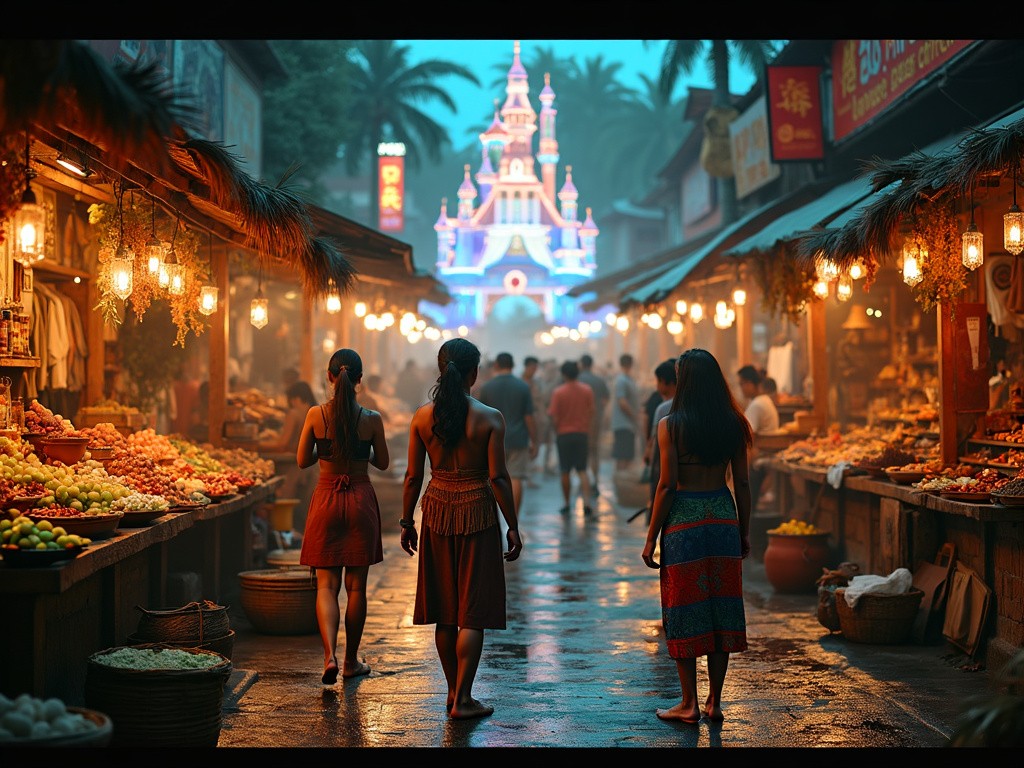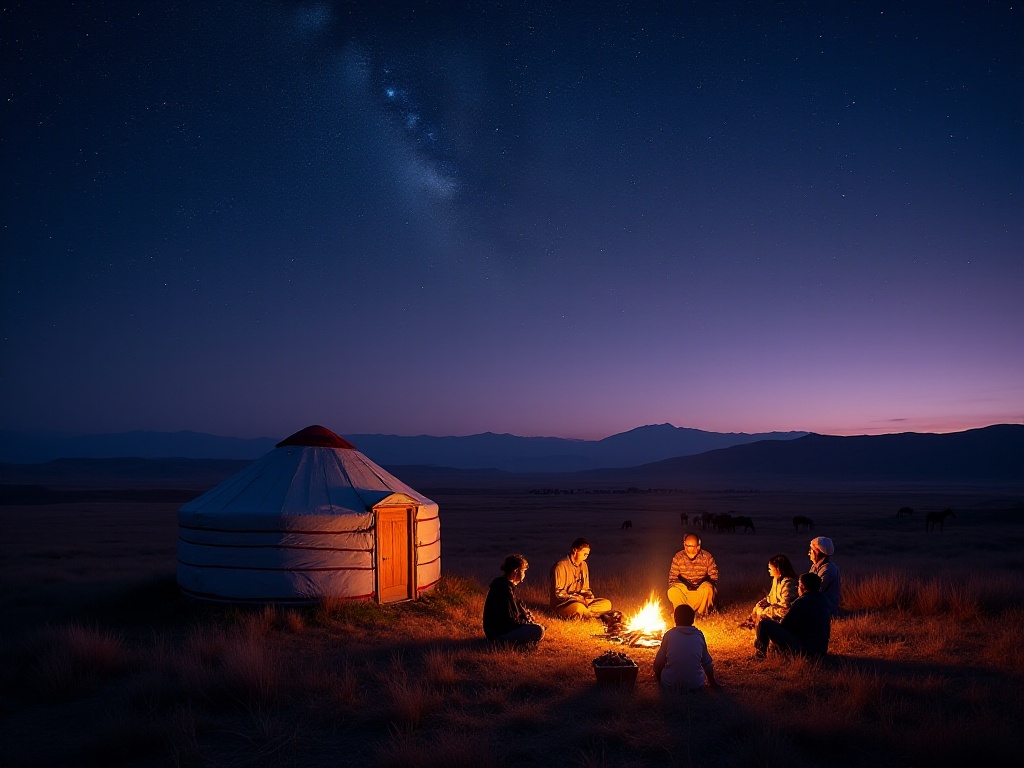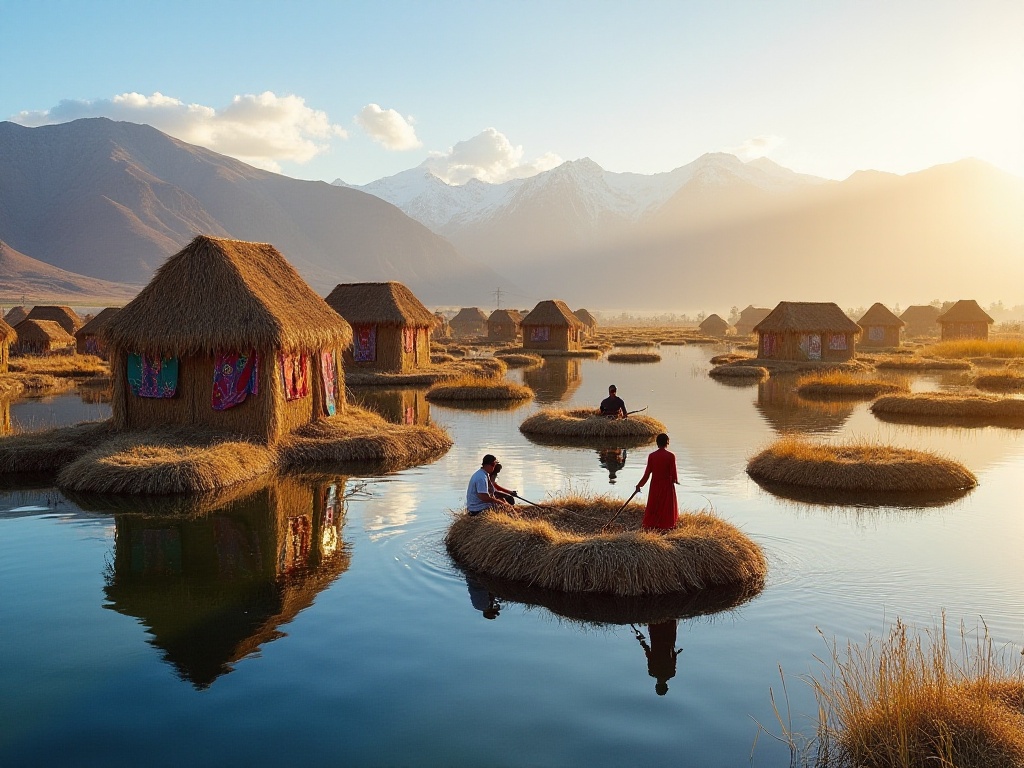In the tapestry of human culture, indigenous voices have long been the vibrant threads that weave tales of ancient wisdom, connection to the land, and unique ways of seeing the world. Yet, as the tide of global tourism surges ever higher, these voices are increasingly at risk of being drowned out, their languages fading like whispers in the wind and their customs eroding like sandcastles before the relentless waves of modernity.

The paradox of cultural exchange in the age of mass tourism is both tantalizing and troubling. On one hand, the exposure brought by curious travelers can shine a spotlight on indigenous cultures, potentially fostering appreciation and support for their preservation. On the other, this very exposure can be the catalyst for their demise, as the authenticity that draws visitors becomes commodified, diluted, and eventually lost in the clamor for souvenirs and selfies.
The numbers tell a stark tale of overtourism's assault on indigenous lands and ways of life. Once-pristine beaches now groan under the weight of countless feet, while ancient forests echo with the cacophony of tour buses and souvenir hawkers. Paradise, it seems, comes with a price tag—one that is often too steep for the very people who have called these places home for millennia.
As visitor numbers swell, so too do the pressures on local communities. The cost of living skyrockets, pushing indigenous residents to the margins of their own homelands. Traditional occupations—fishing, farming, craftsmanship—find themselves outpaced by the siren call of the tourism industry. The very fabric of community life begins to fray as housing becomes a battleground between locals and short-term rentals, and infrastructure groans under the strain of peak season influxes.

Perhaps most insidious is the slow, often imperceptible erosion of cultural authenticity. Sacred rituals become photo opportunities, traditional dress becomes costume, and ancient customs are reduced to nightly shows at all-inclusive resorts. The delicate balance between sharing one's culture and selling it outright becomes ever more precarious.
At the heart of this cultural erosion lies the twilight of indigenous languages. Each tongue that falls silent takes with it not just words, but entire worldviews, creation stories, and generations of accumulated knowledge. The elders who hold these linguistic treasures find fewer and fewer young ears eager to receive them, as the youth are pulled towards the global lingua franca of tourism and commerce.
Yet, in the face of these challenges, hope flickers like a stubborn flame. Innovative approaches to sustainable tourism are emerging, driven by indigenous communities themselves. These initiatives seek to strike a balance between economic opportunity and cultural preservation, inviting visitors to be not just observers, but respectful participants in living traditions.
Education, too, plays a crucial role in this delicate dance of preservation and progress. By fostering genuine cultural understanding, both among travelers and local youth, we can build bridges between worlds that honor the past while embracing the future.

As global citizens and travelers, we stand at a crossroads. The path we choose will determine whether future generations will hear the echoes of ancient songs and stories, or whether these will be lost forever to the relentless march of time and tourism. The power lies in our hands—in the choices we make about where we go, how we travel, and how we interact with the cultures we encounter.
In the end, the preservation of indigenous languages and customs is not just about maintaining diversity for diversity's sake. It is about recognizing that in these ancient ways of being and knowing lie potential solutions to our most pressing global challenges. It is about understanding that when we lose a language or a custom, we lose a unique lens through which to view and understand our world.
As we venture forth into the world, let us do so not as mere consumers of culture, but as guardians of heritage. Let us travel with open hearts and minds, ready to listen more than we speak, to learn more than we teach. For in doing so, we may yet ensure that the rich tapestry of human culture remains vibrant and whole, with indigenous voices woven strongly throughout, singing their songs for generations to come.







